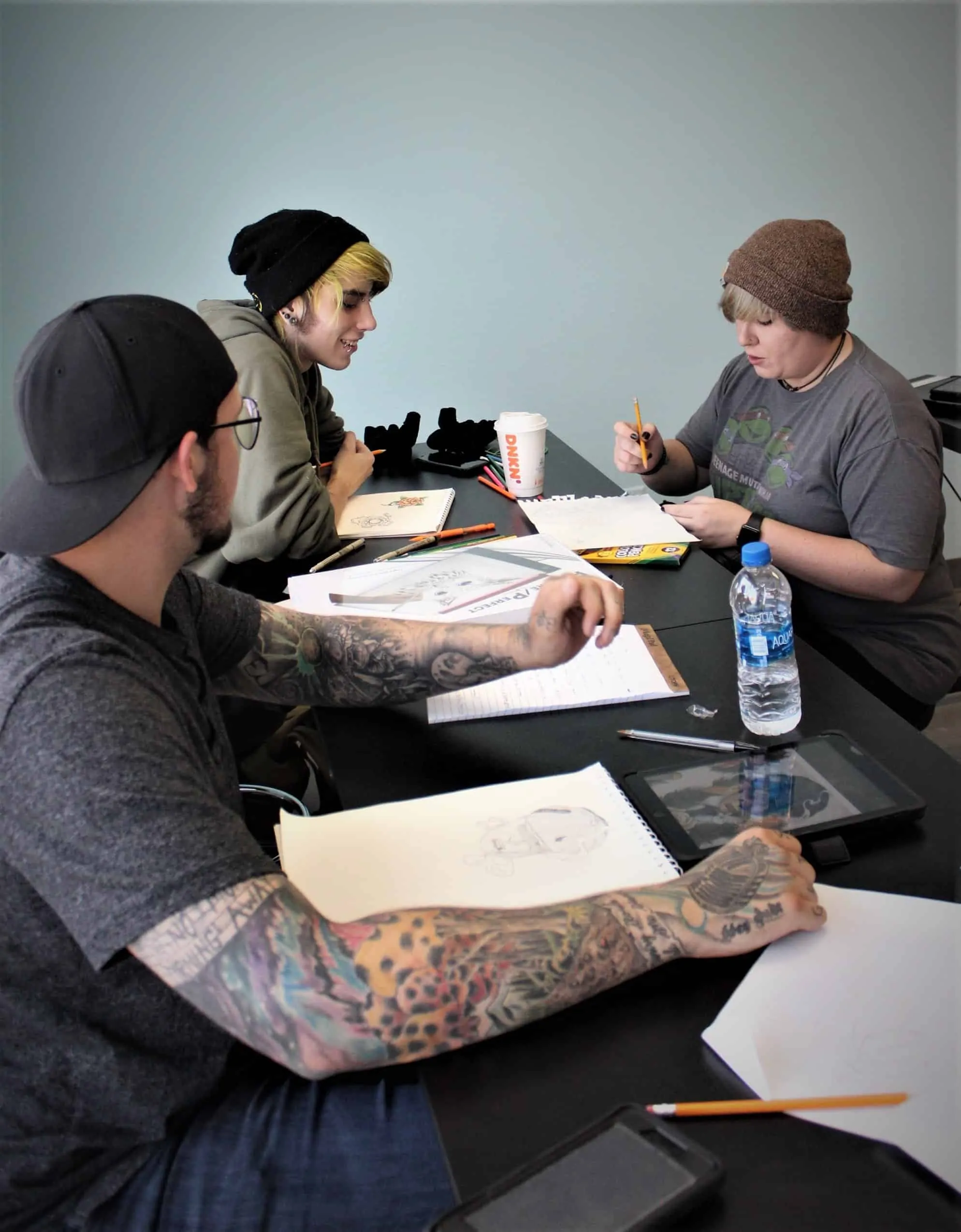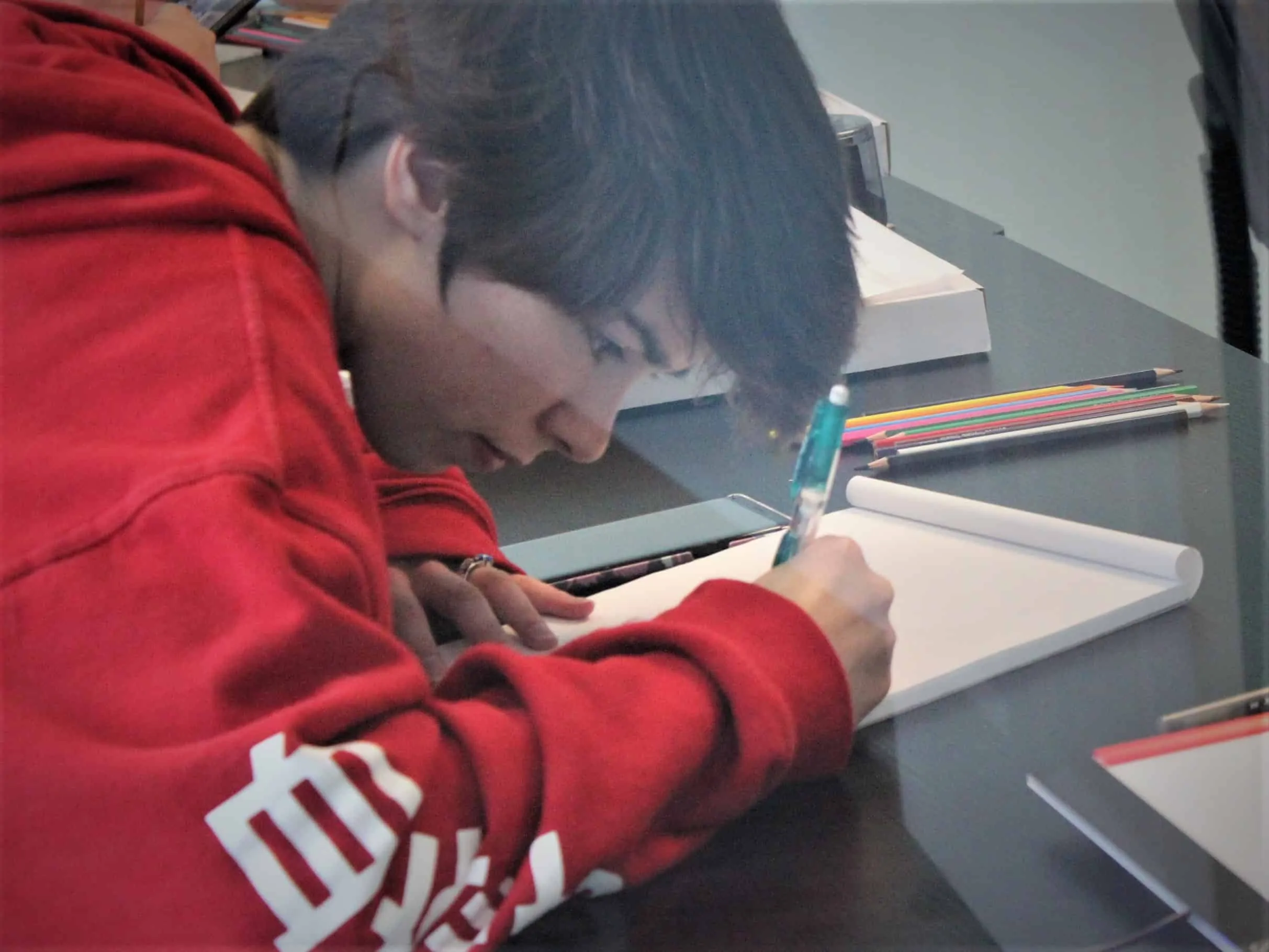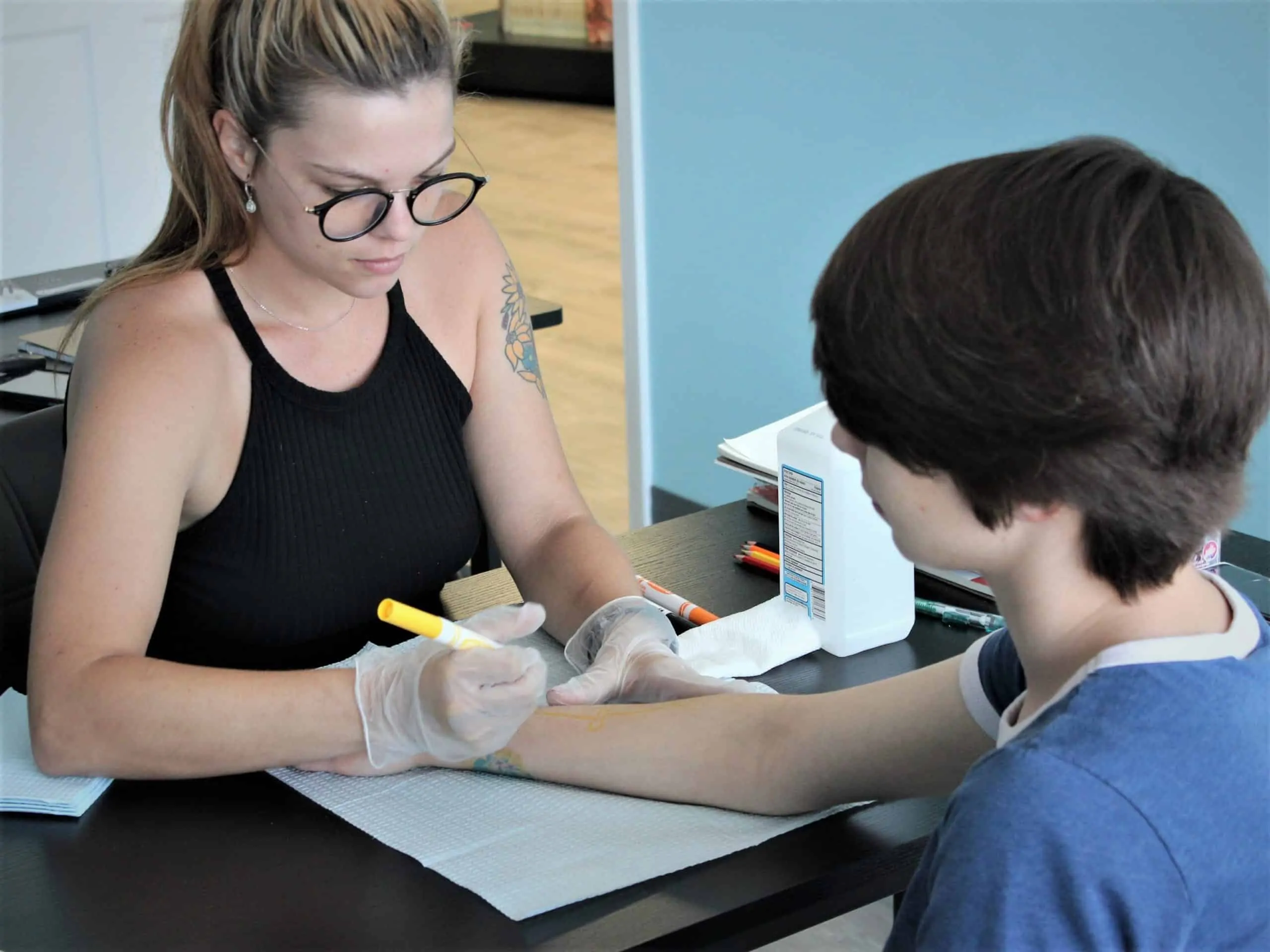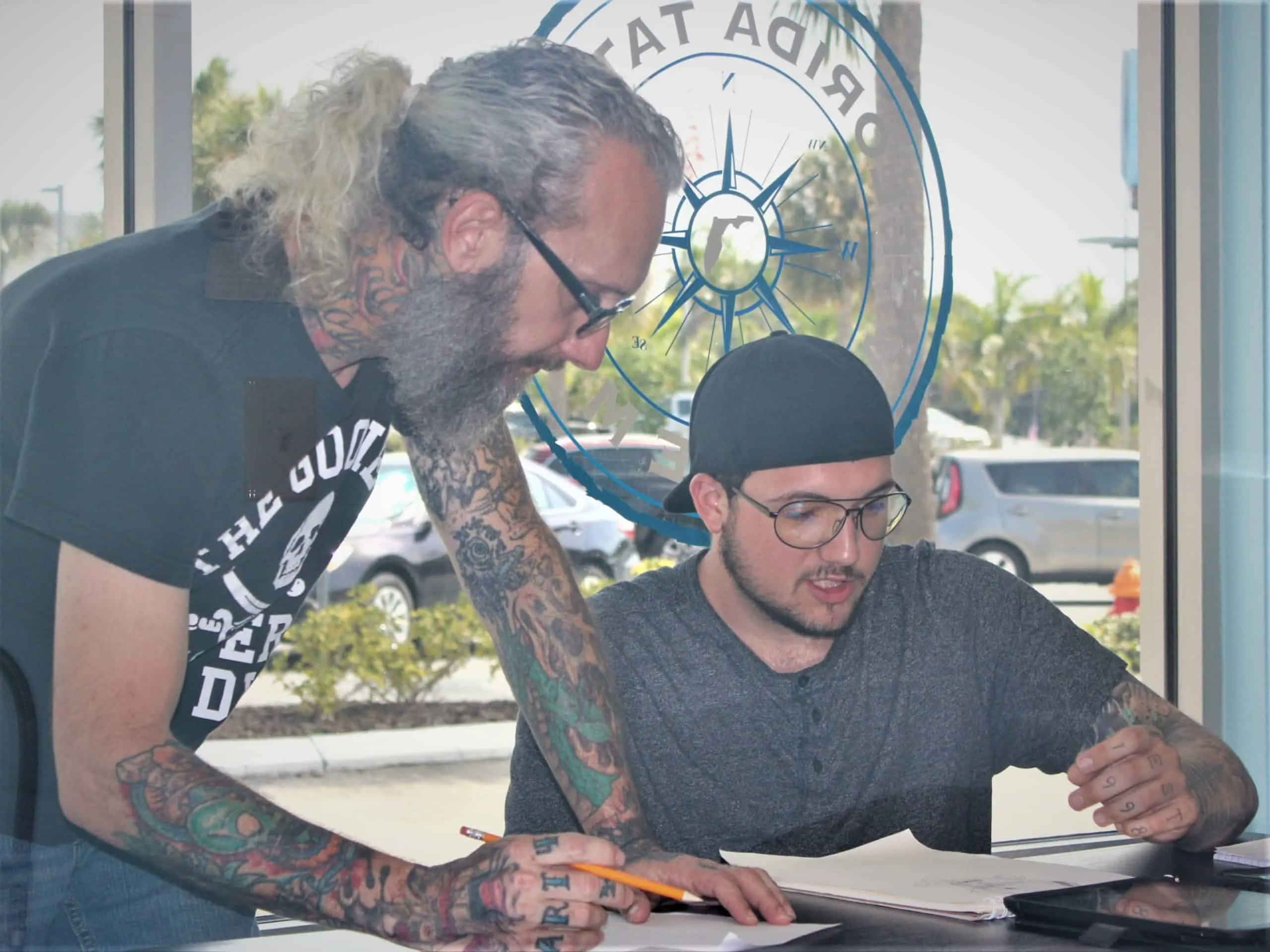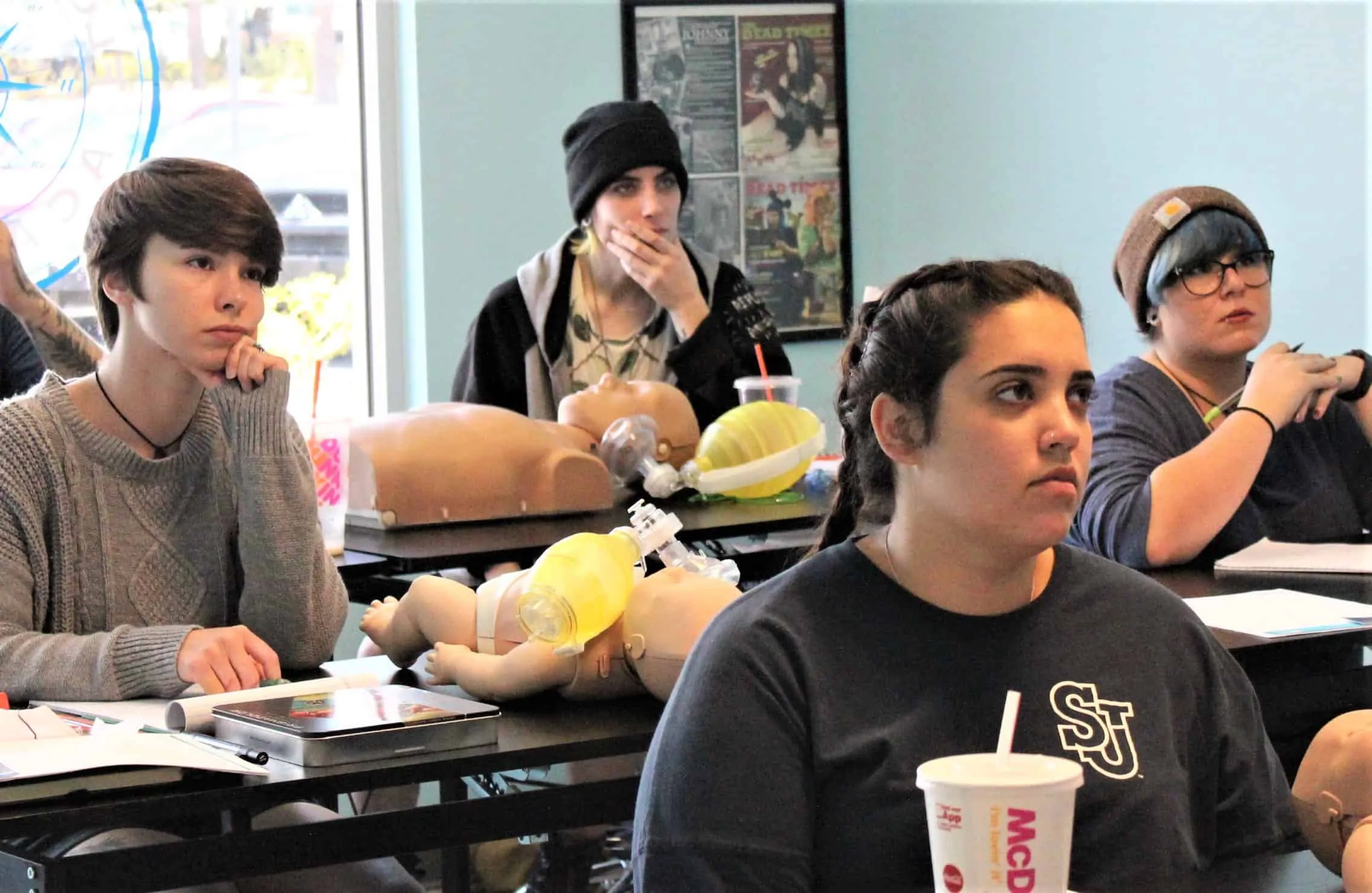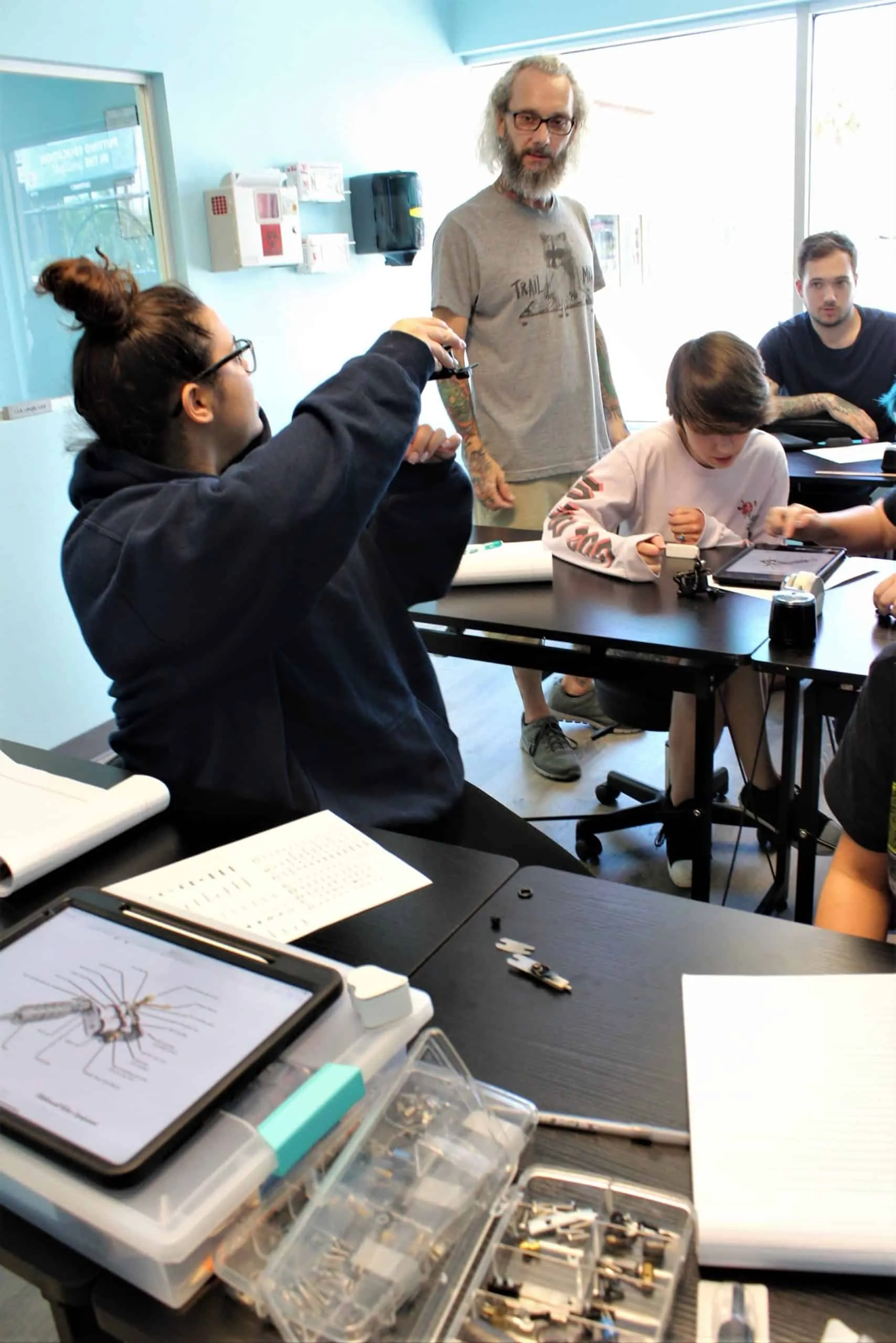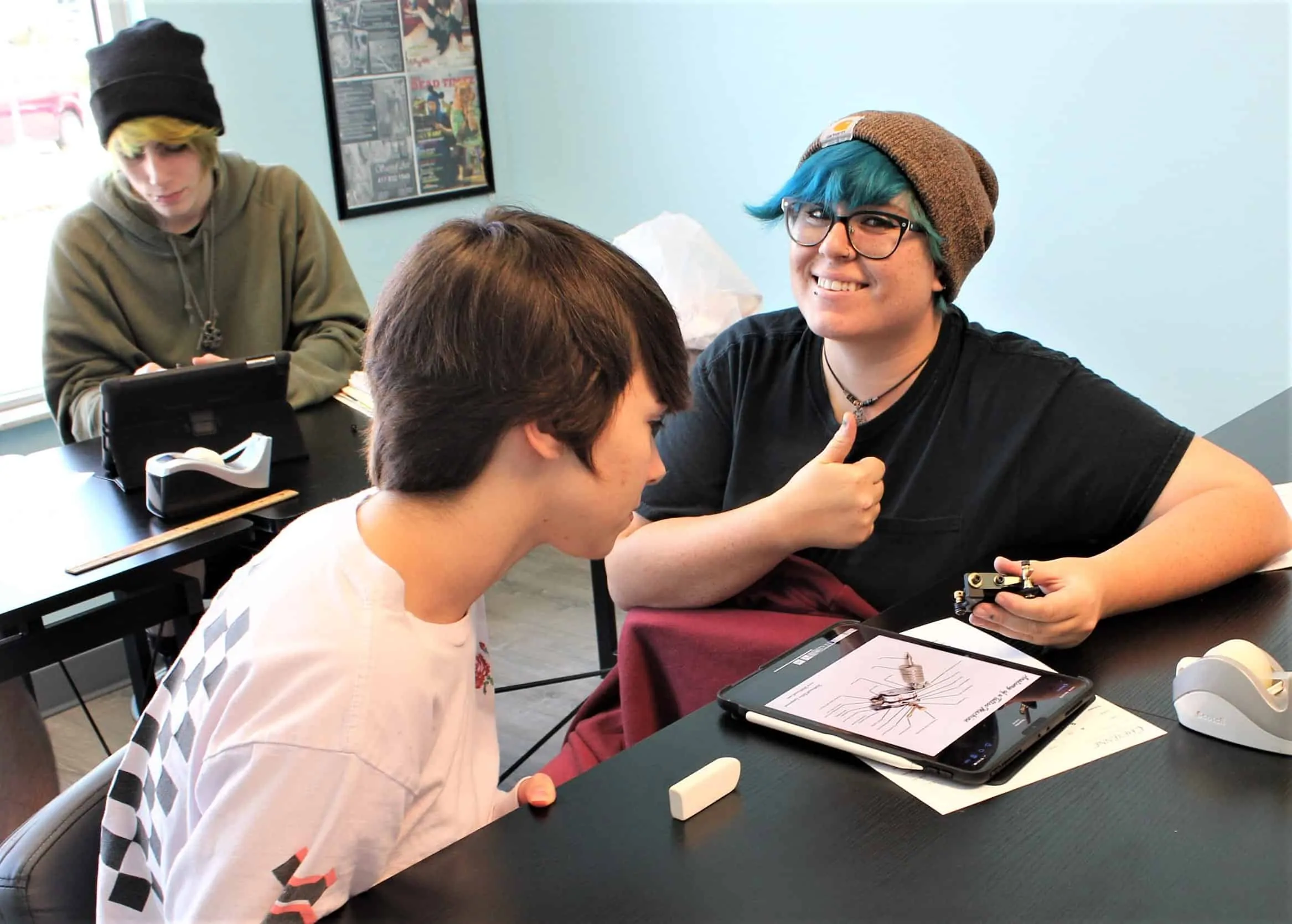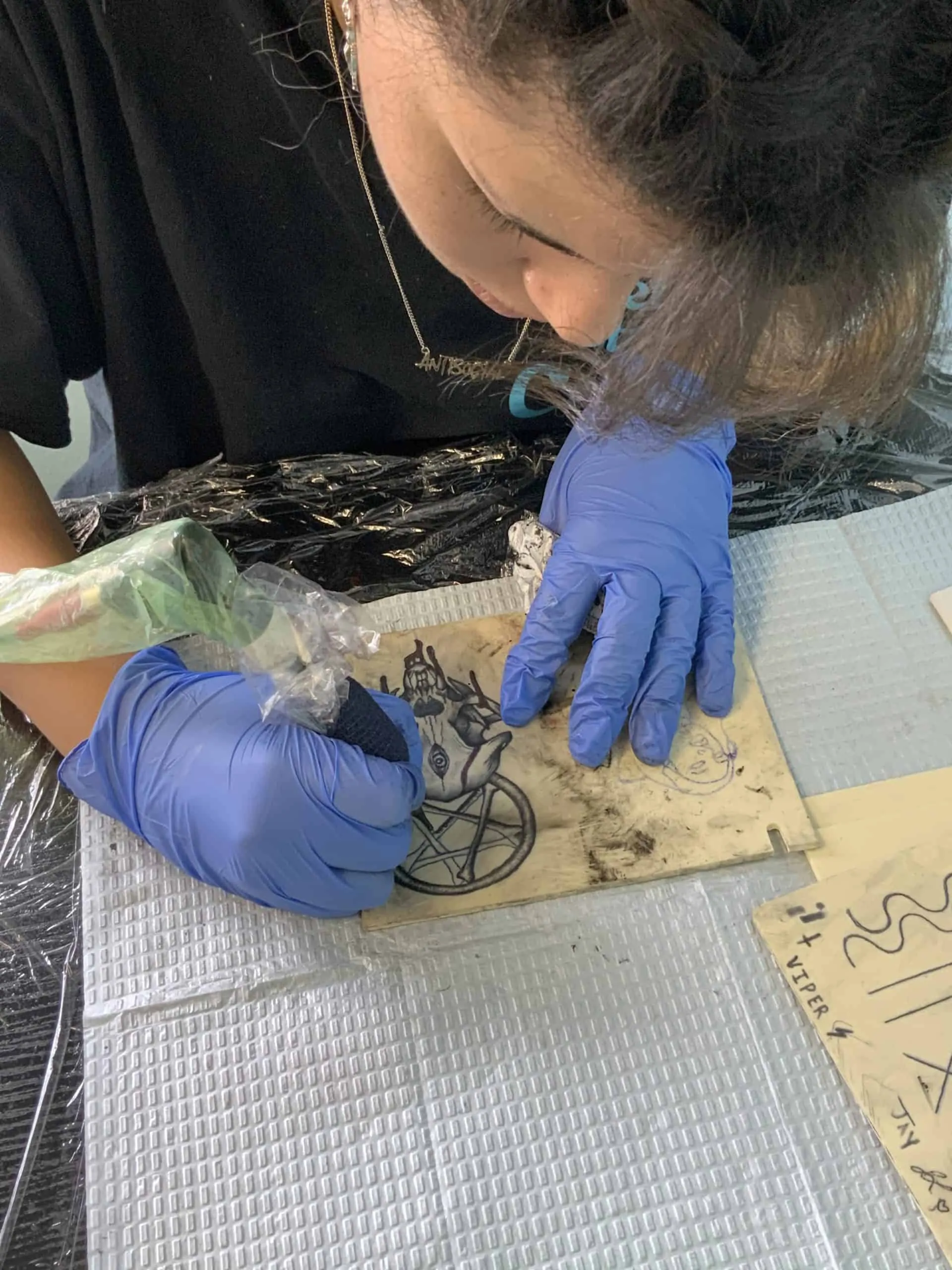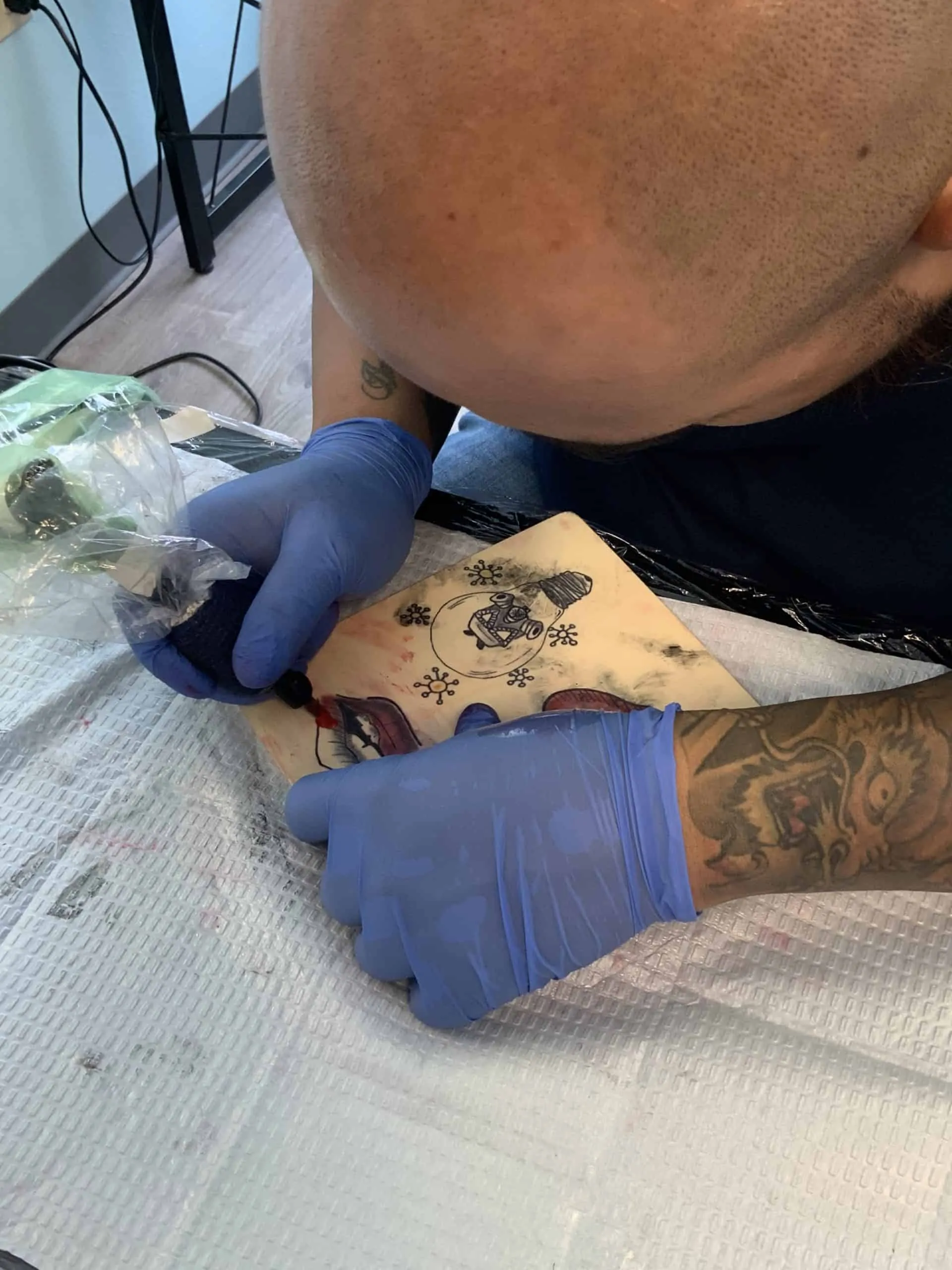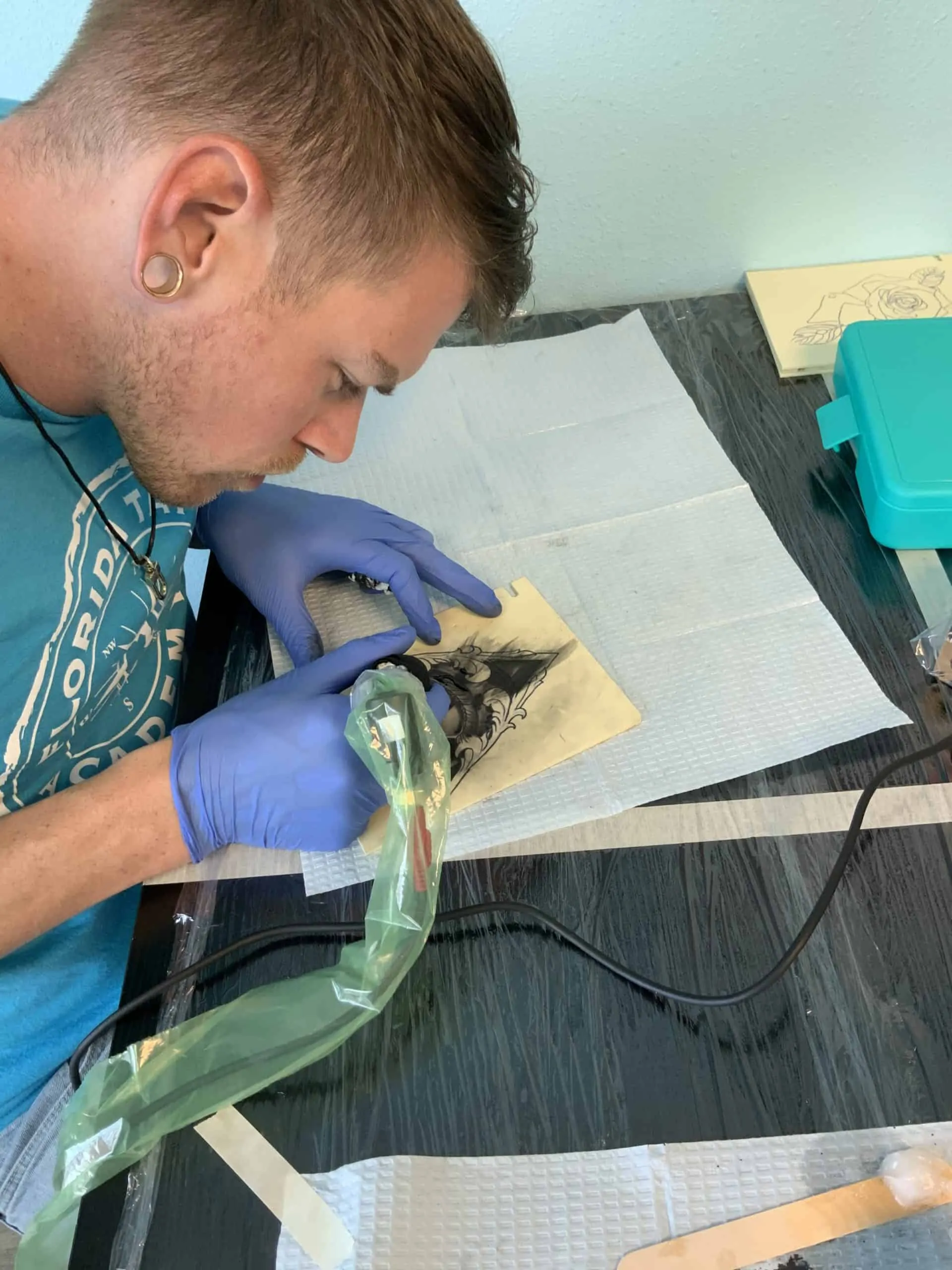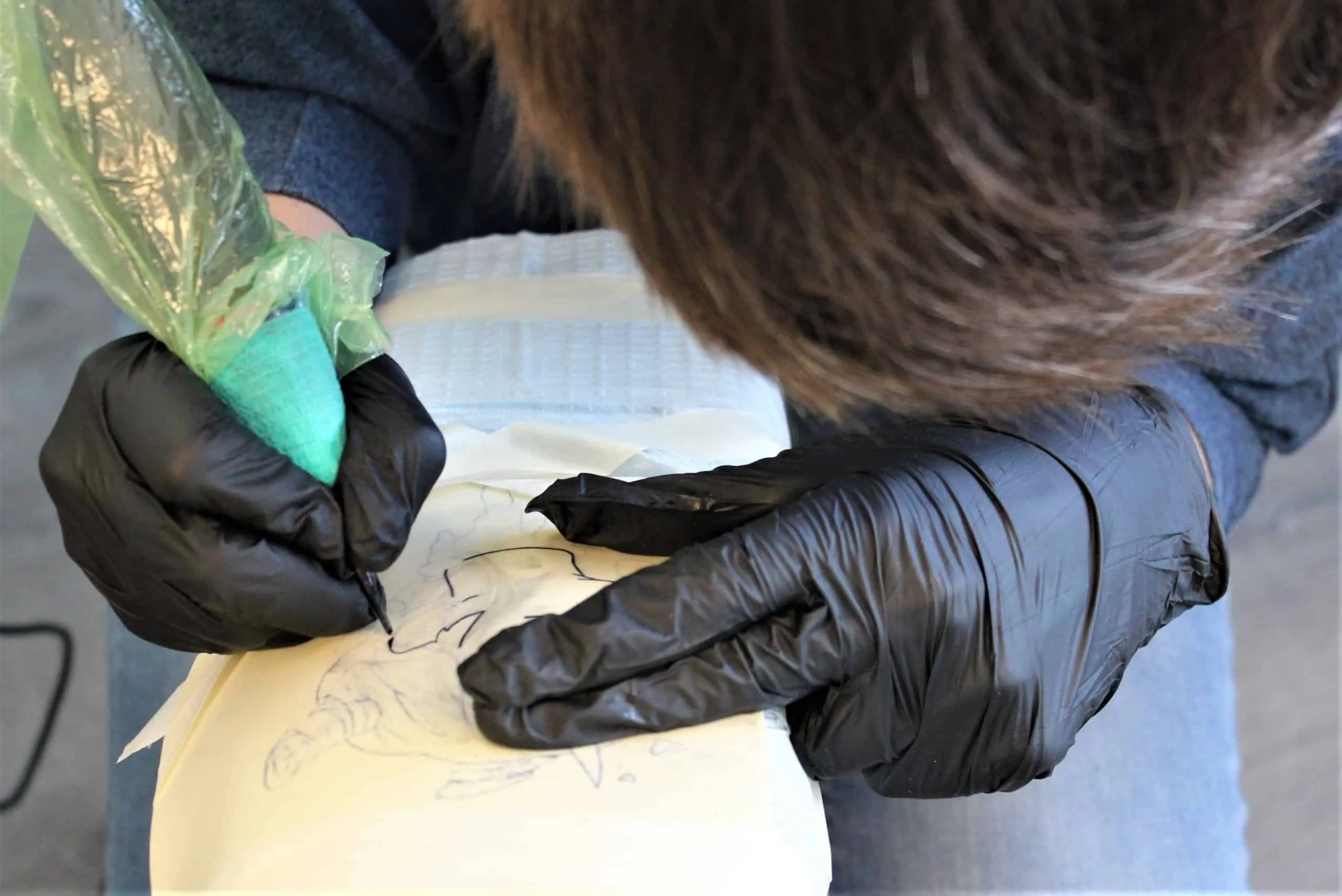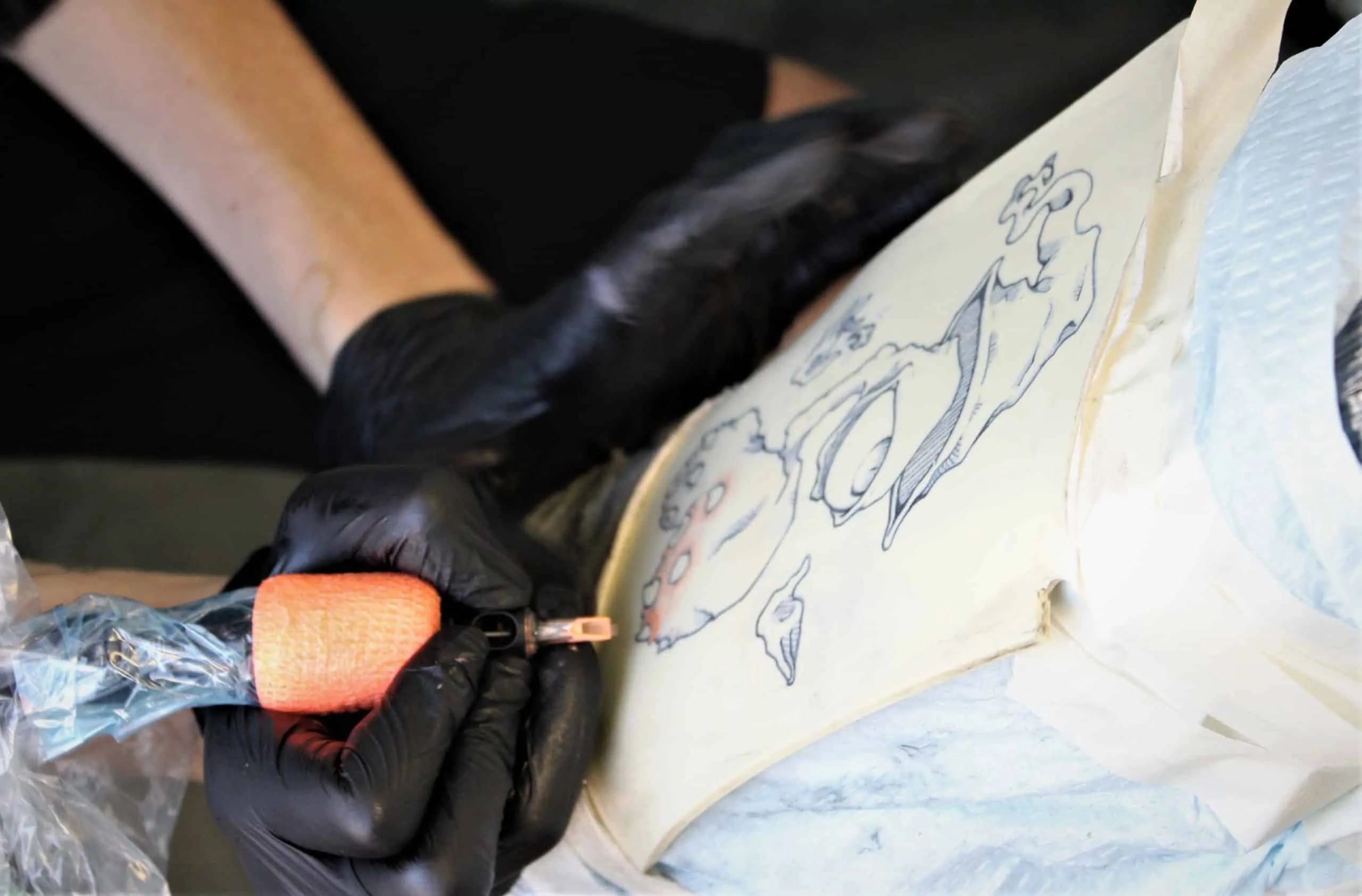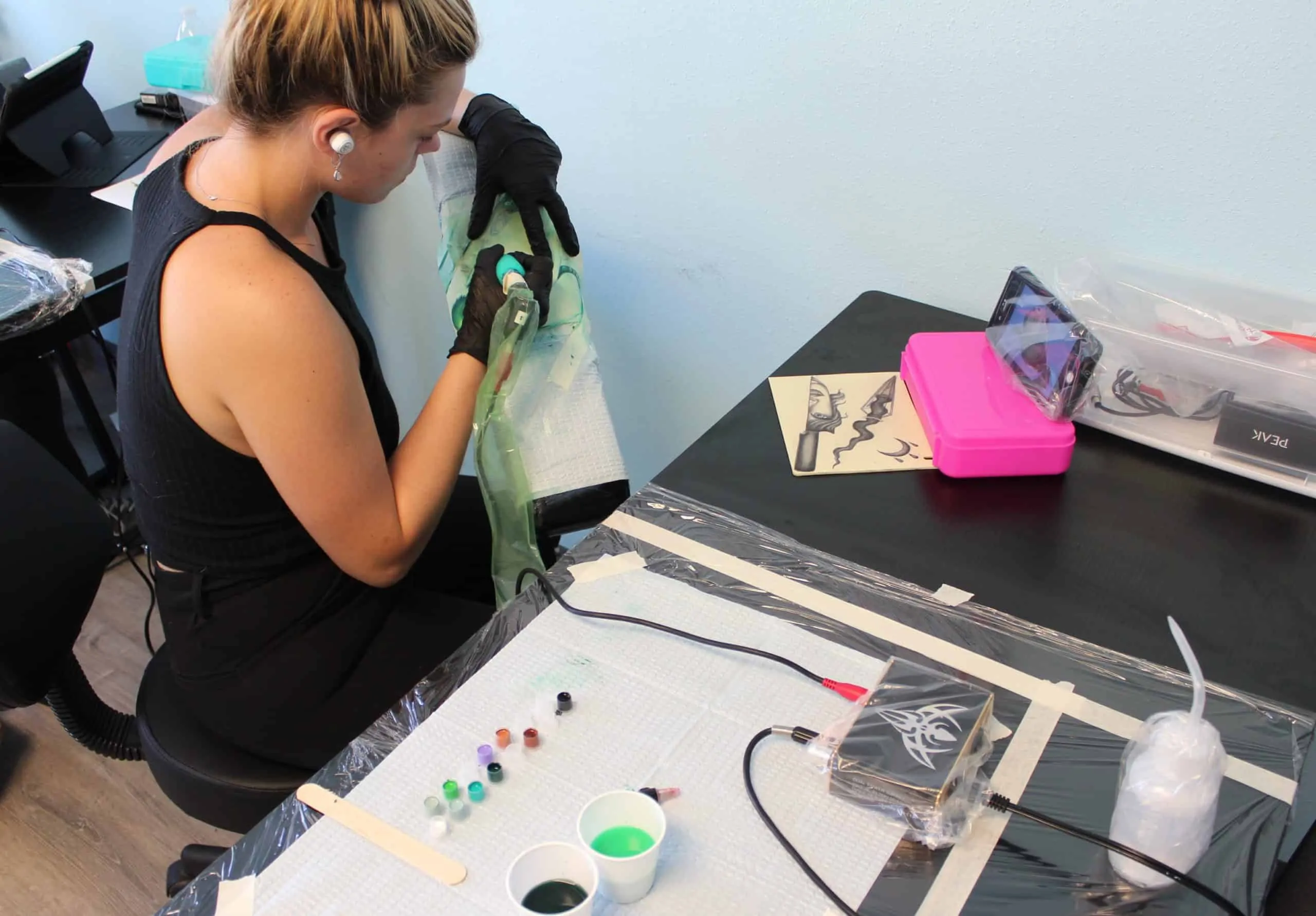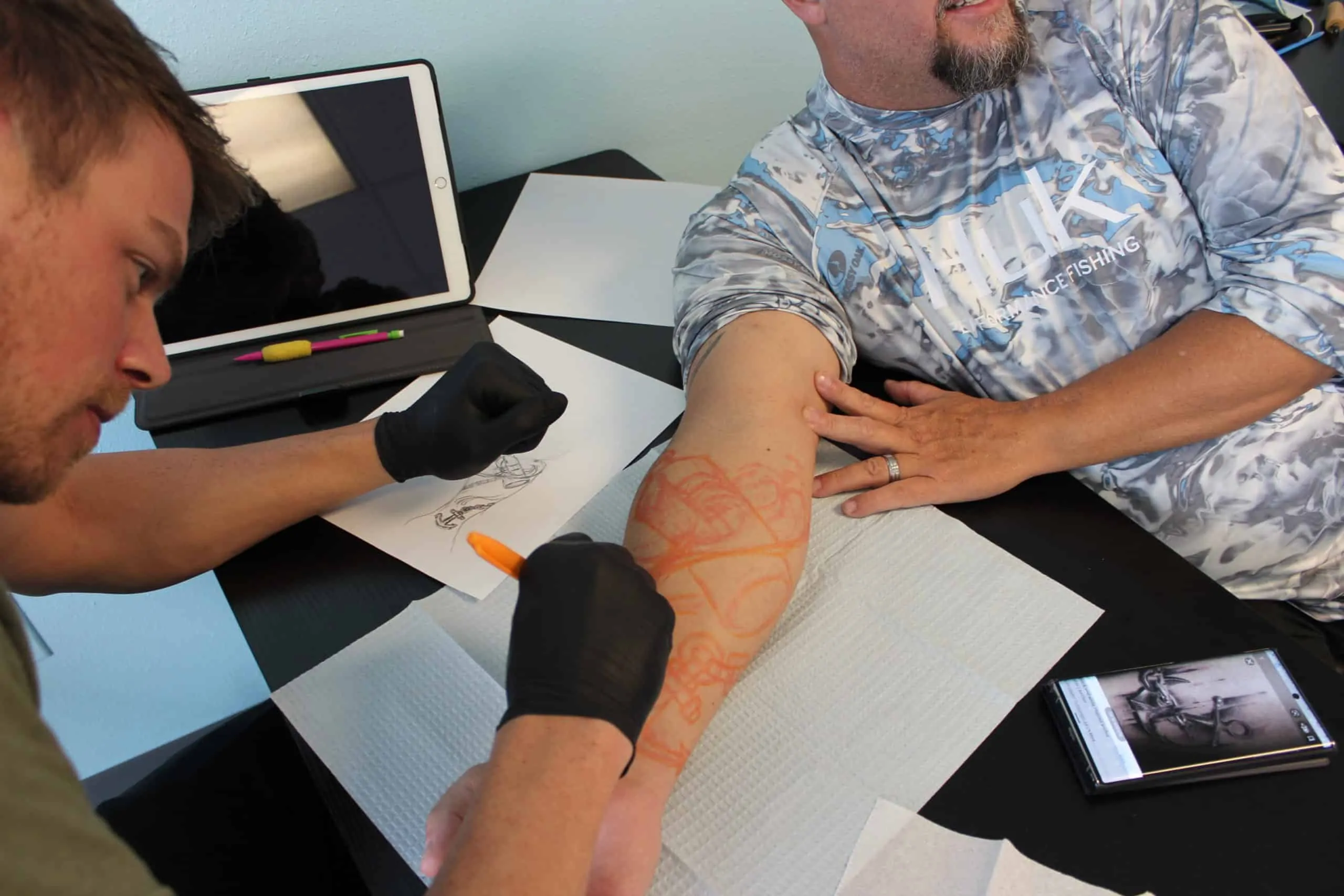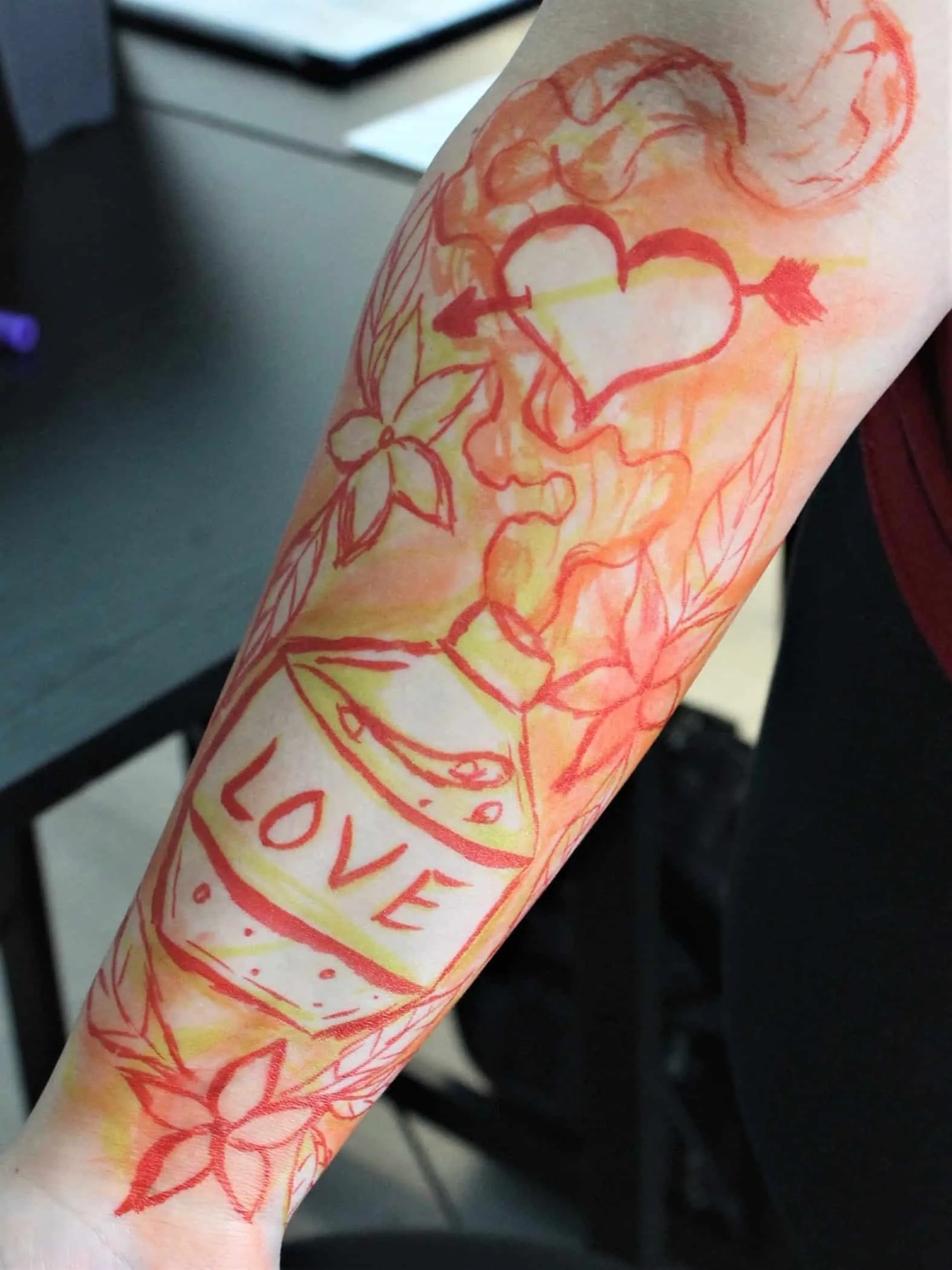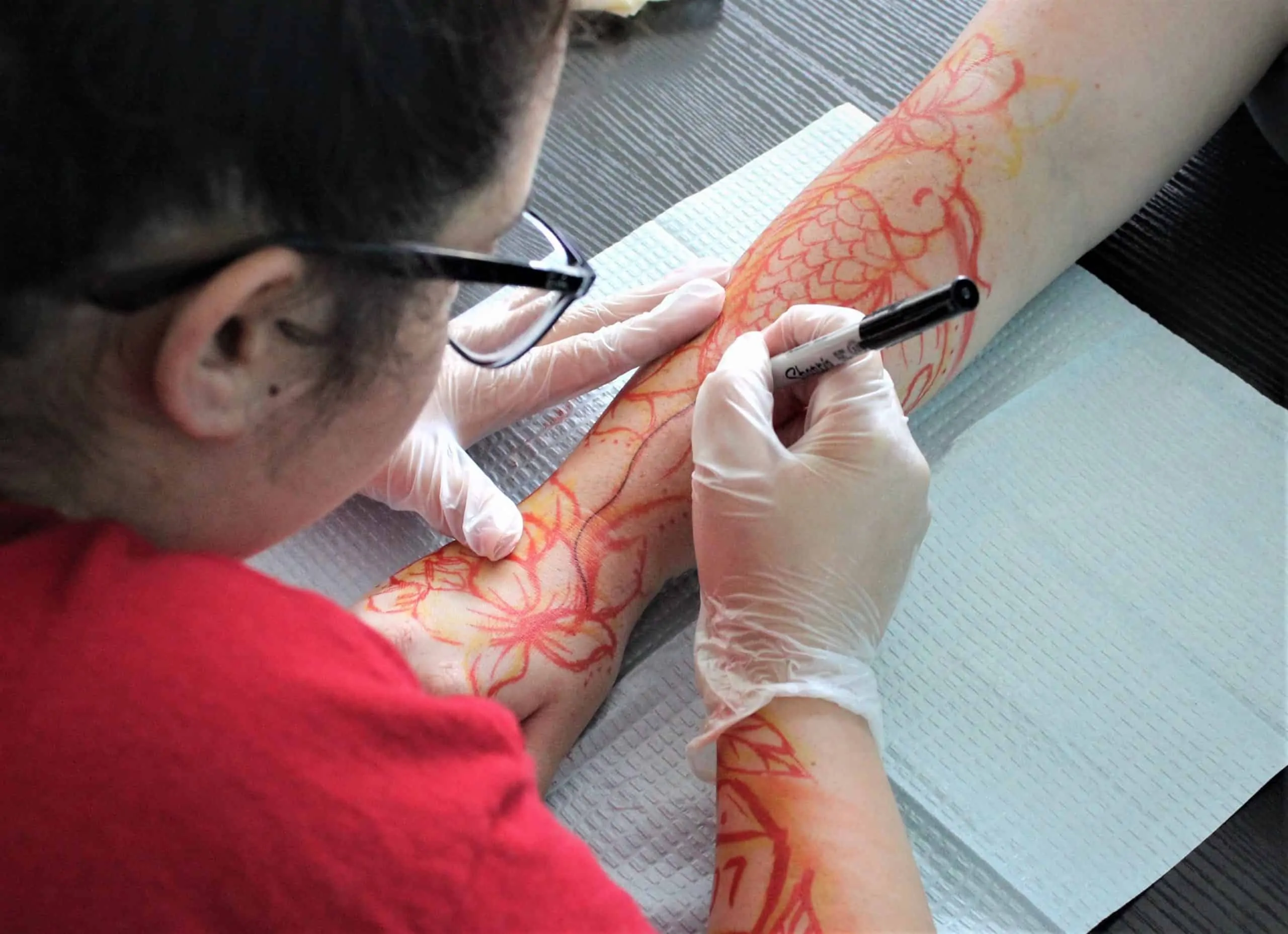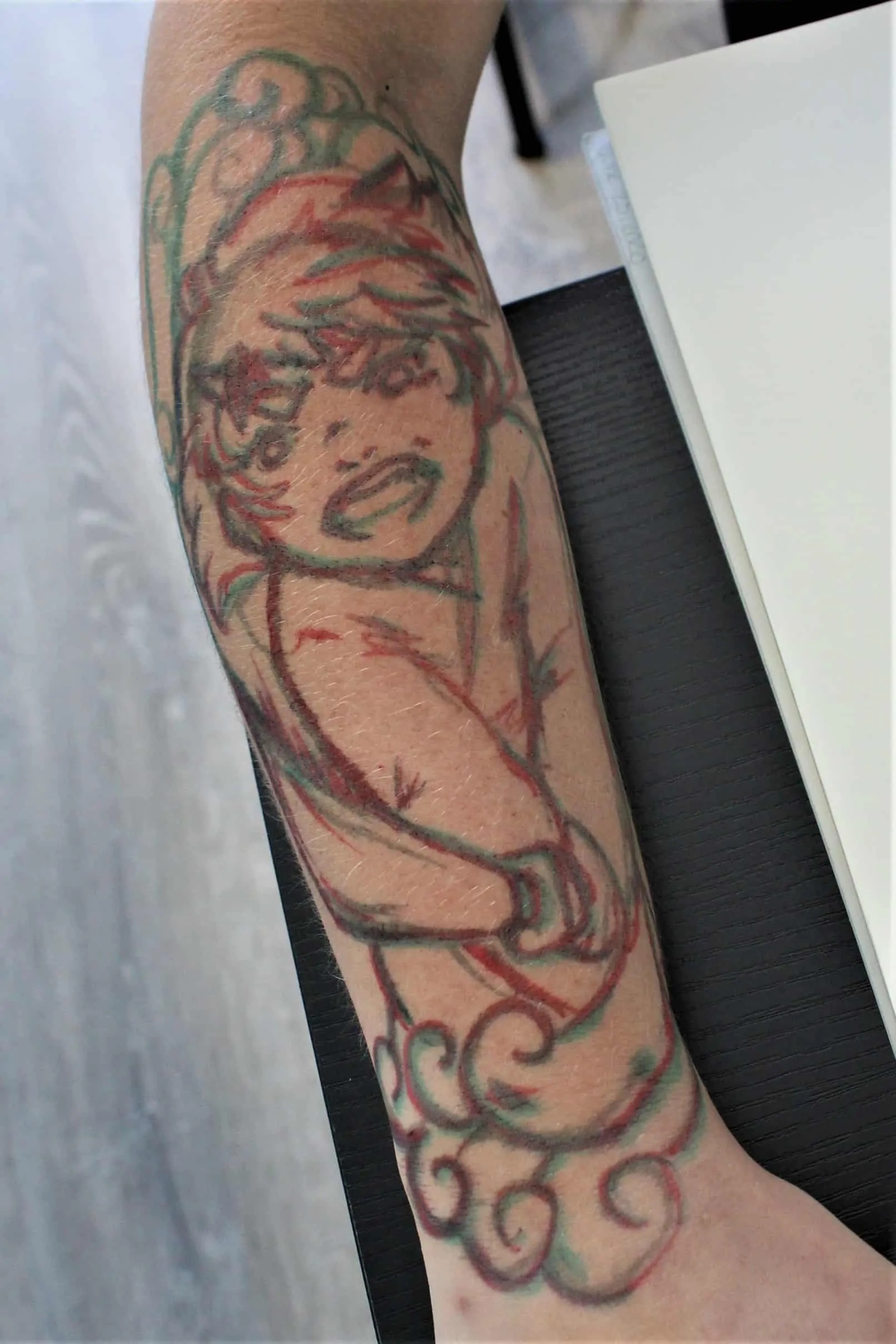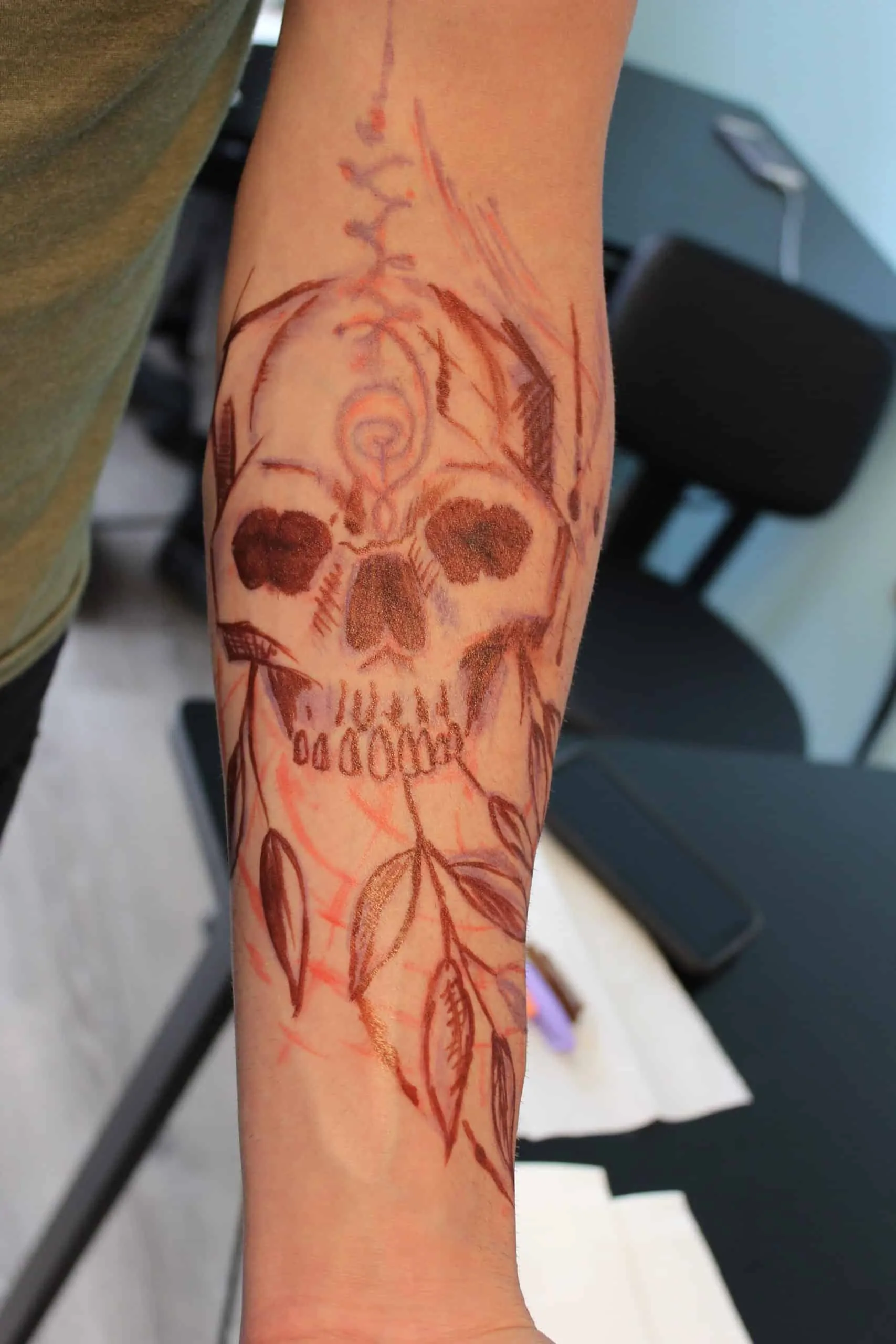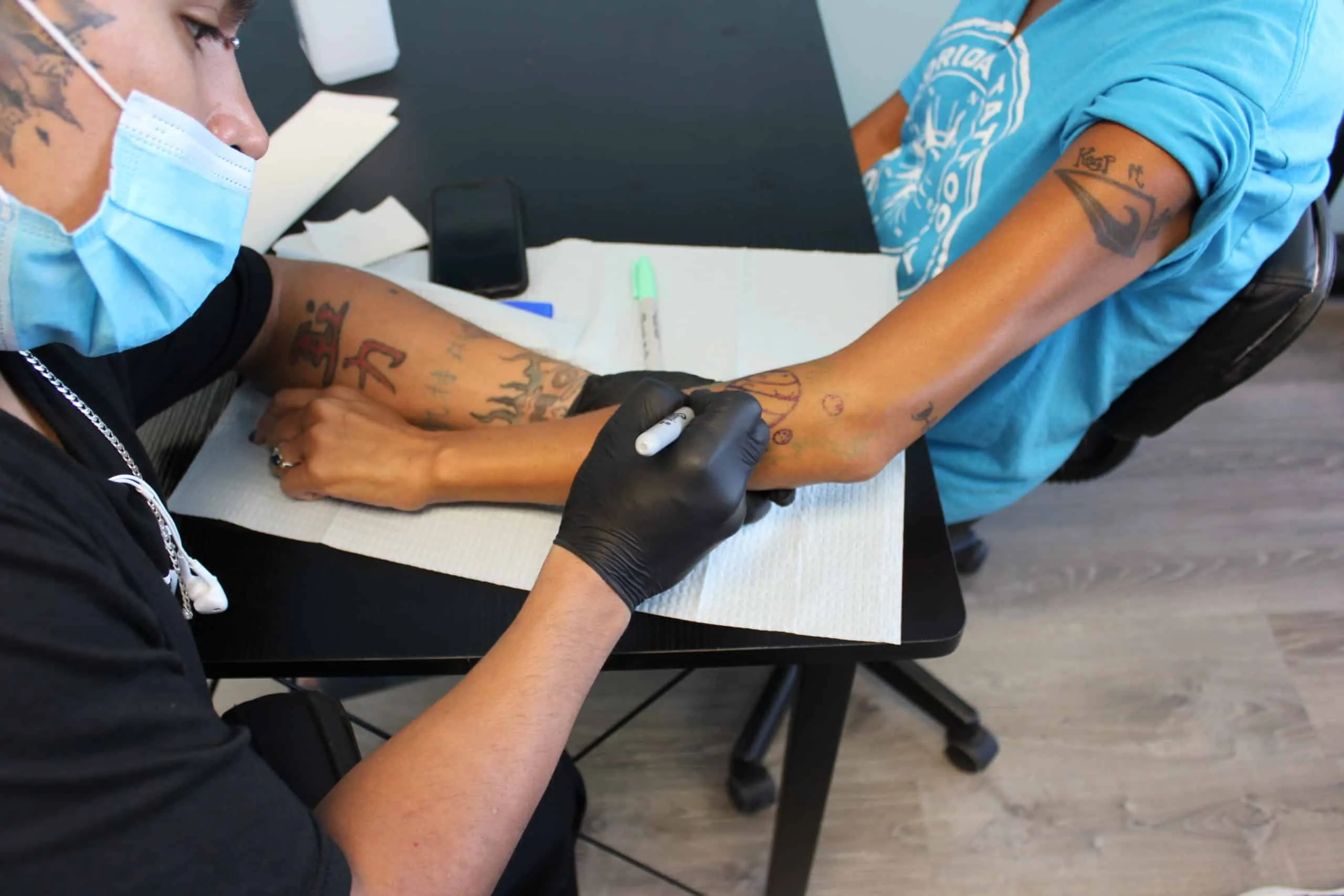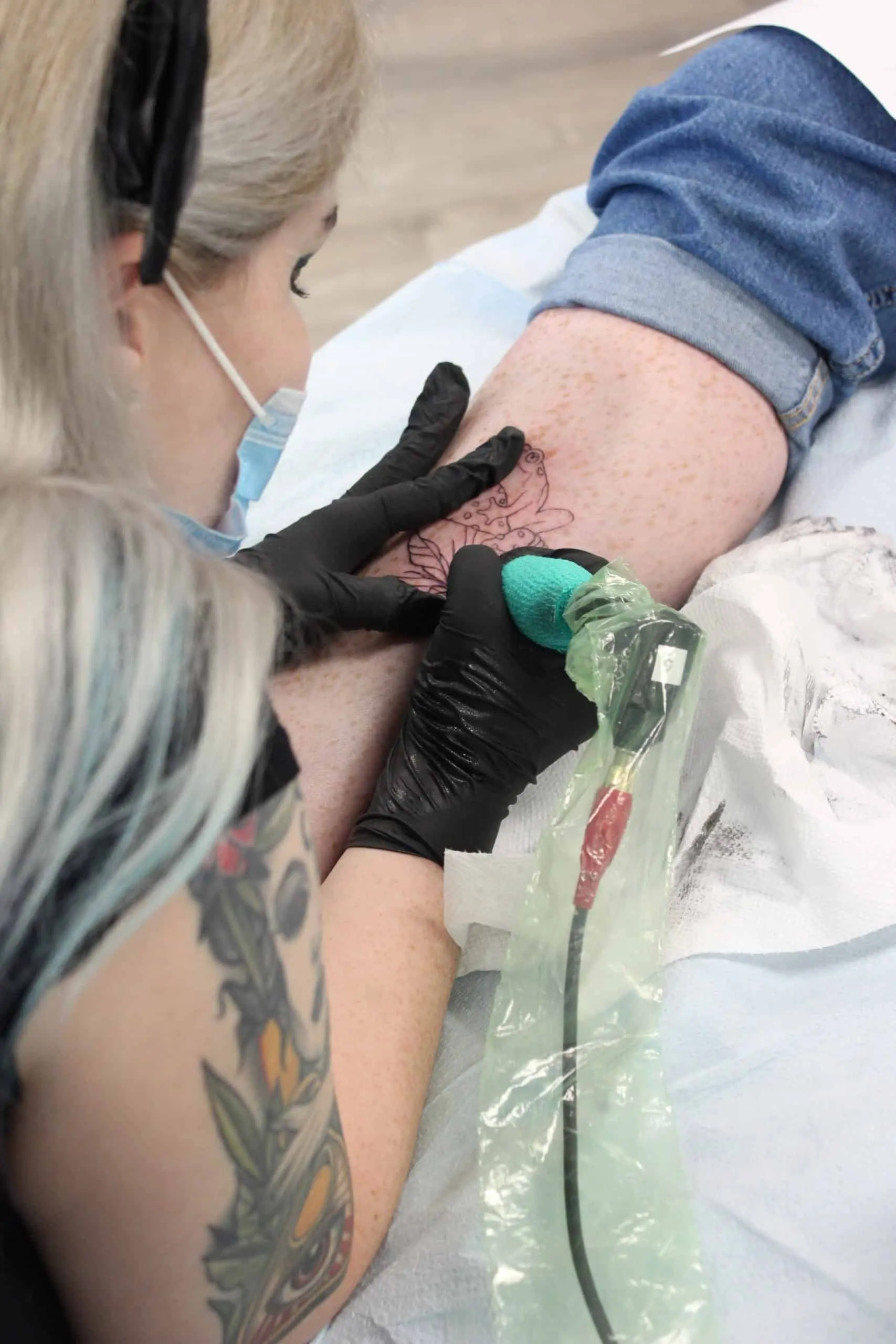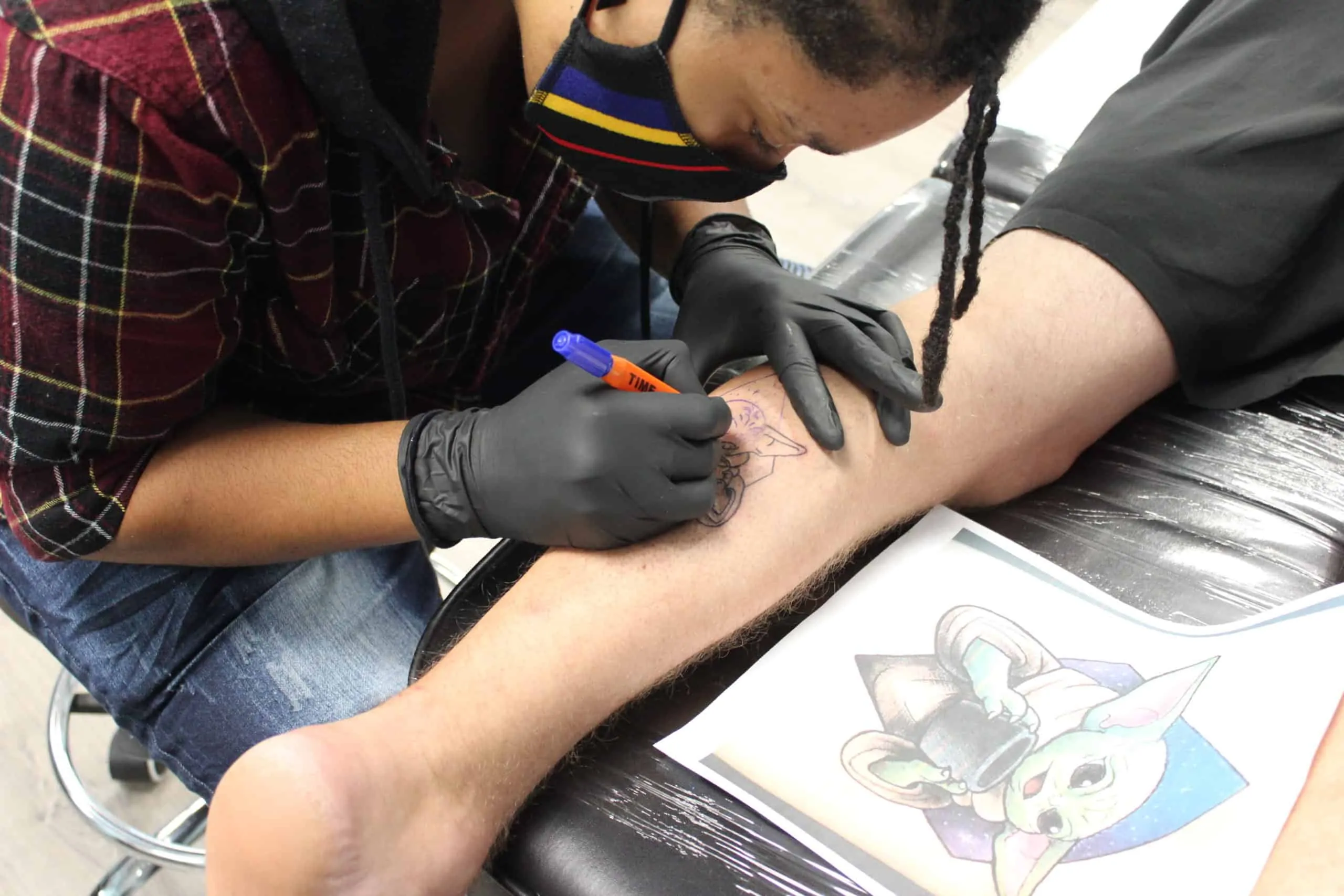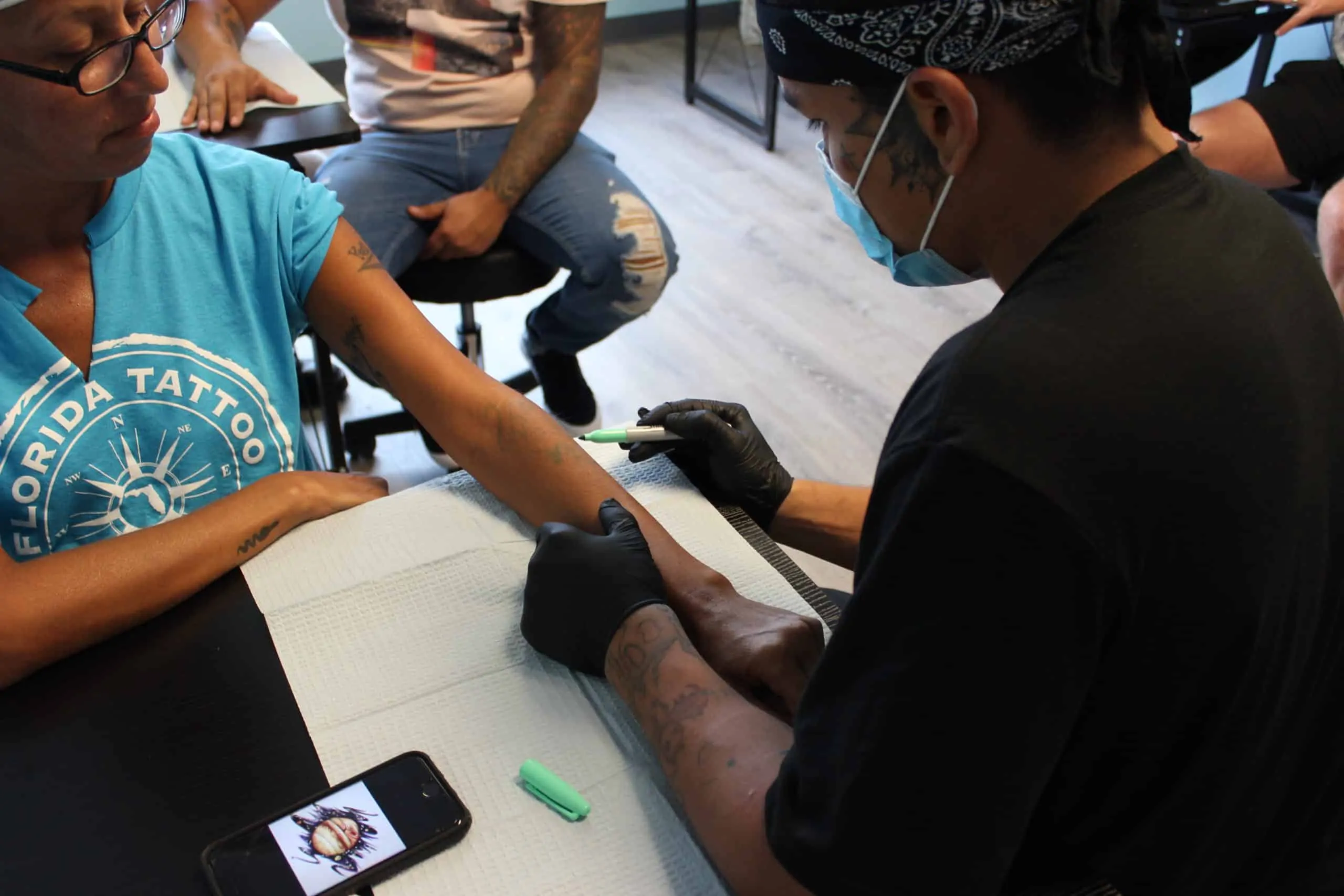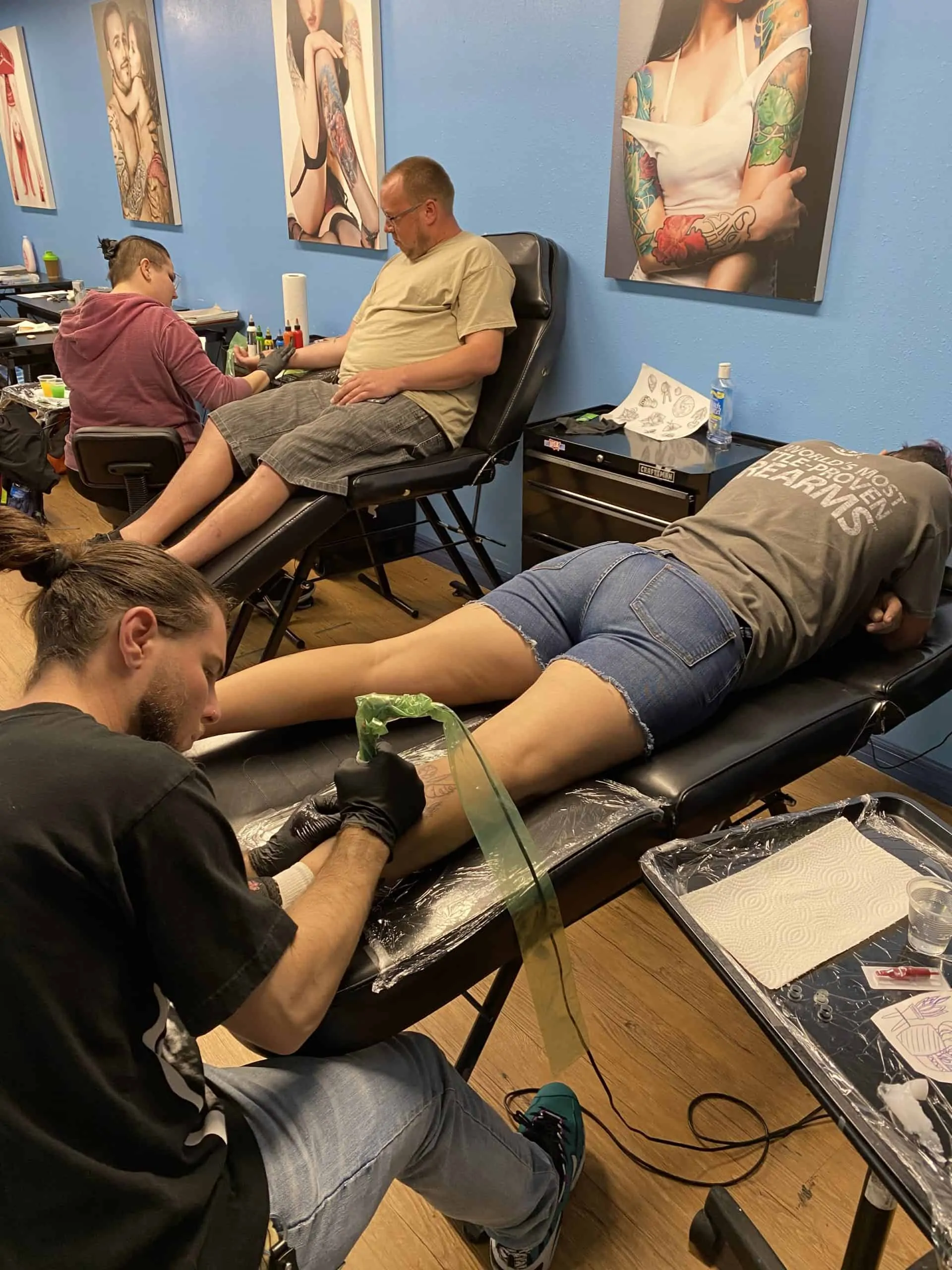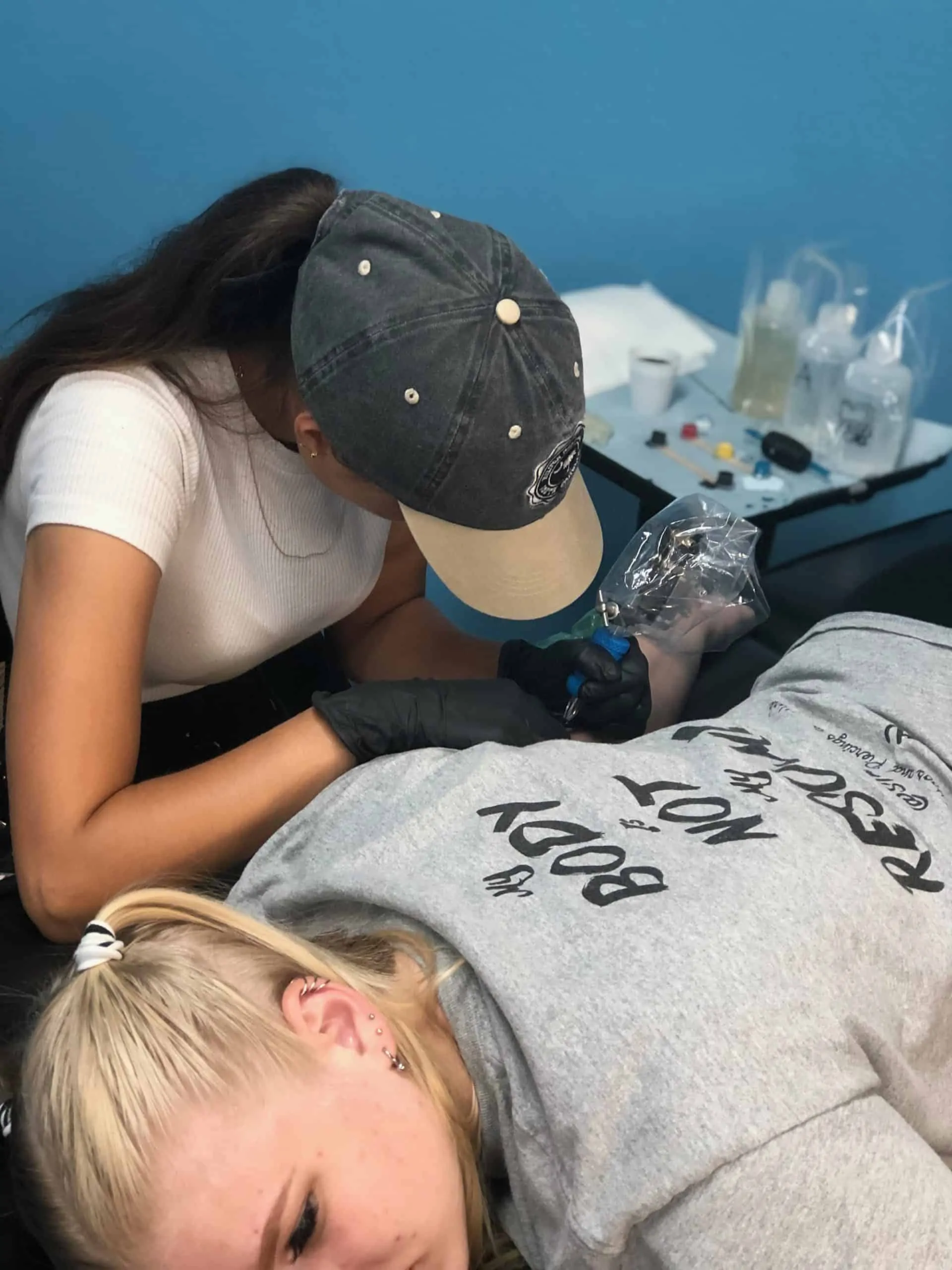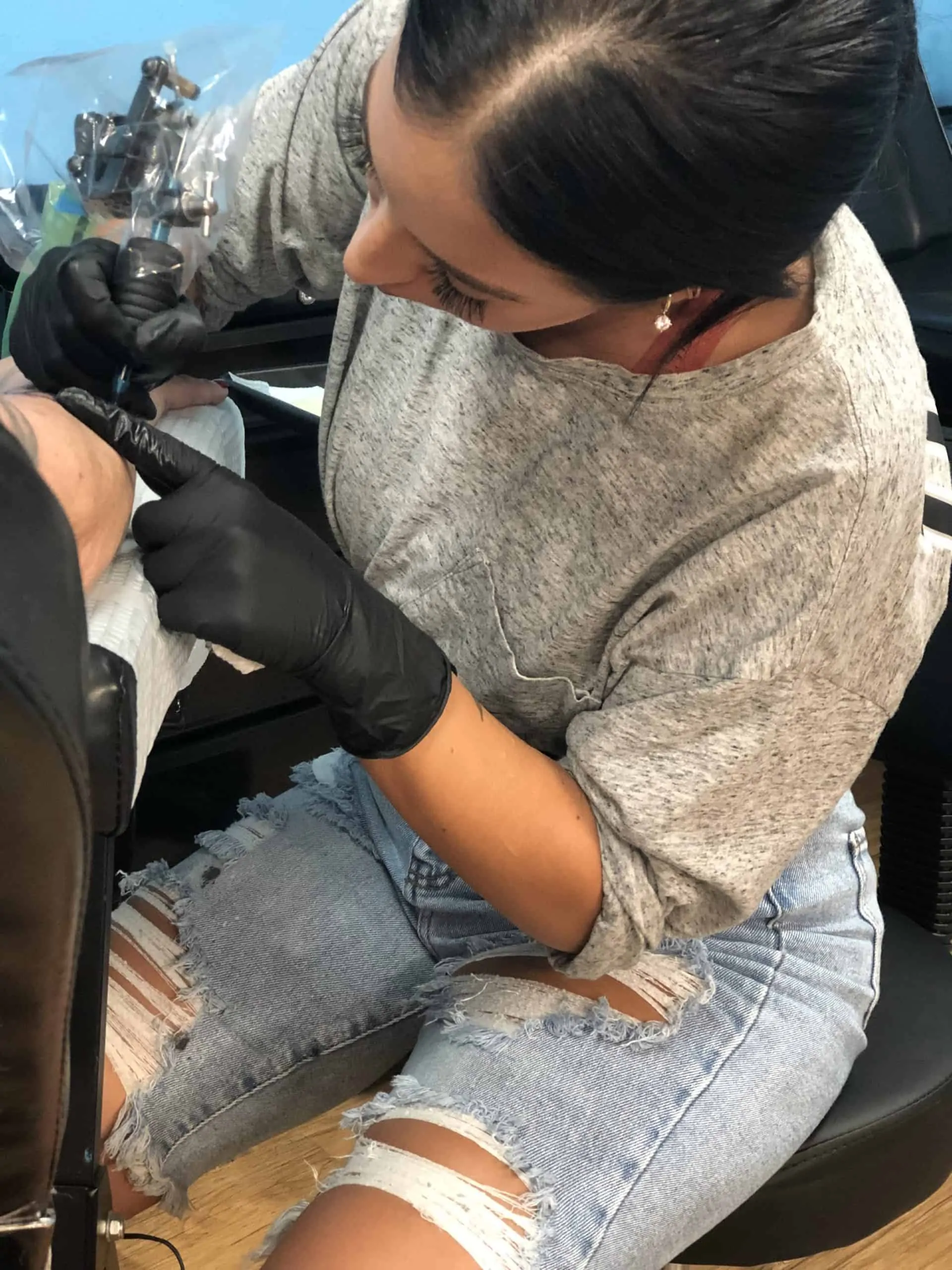Week 1
The History of Tattoo
Students are introduced to ancient tattoo practices and skin modification trends and tools across all continents and historic periods as well as the history of modern electronic tattooing. Key figures in the development of our current culture are explored along a timeline dating from prehistory to today.
Week 2
The Art of Tattoo
Art styles from different eras and cultures are examined as students begin to practice their art skills on paper. Students begin studying tattoo placement by using markers on human skin.
Week 3
Best Practices
Students review cross contamination, sanitation, studio safety as well as receive their Blood Born Pathogen certifications.
Week 4
Machine Technology & Skin Biology
Students study the specifics of skin biology with a focus on skin health assessment, reducing trauma, clean healing, and interviewing skills focused on conversations with clients about skin issues that may hinder their tattoo. Students also learn how to build, breakdown, and maintain coil machines, and are introduced to using foot pedals, power supplies, and rotary machines.
Week 5
Practical Tattoo Practice
Basic line and shading techniques are explored as students finally get to dip into ink. Starting with guided activities on grapefruits and moving to synthetic skins, students learn proper aseptic techniques while focusing on optimal depth and ink distribution.
Week 6
Practice Skin
Students are encouraged to use their original art throughout the practice stages. Students spend these sessions learning their station set up and breakdown, consultation skills, and time management as well as practicing the principles of color shading and values.
Week 7
Intro to Shop Life
Topics including customer service basics, shop management, tattoo pricing, and proper documentation. Students are given pig skin in this week as a last step and exam before becoming licensed to tattoo.
Week 8
Consultations (Human Skin)
As students begin their licensed training, they learn how to speak with clients to ensure the tattoo will be a piece of art that the client will love. Listening and communication skills are honed as students start meeting with clients.
Week 9
Artist Responsibility (Human Skin)
Ethics, artistry, and excellent customer care are further emphasized as students build their portfolio during the “Family and Friends” week.
Week 10
Client Care & Self Marketing (Human Skin)
Training continues with emphasis placed on aftercare and touch-up techniques as students move through their third week of tattooing clients. Self-marketing skills are reviewed as students prepare to graduate to paying customers.
Week 11
Customer Service & BUsiness Management (Human Skin)
Graduation week is spent preparing the students for their future careers in the tattoo industry by reviewing their body of work and helping to build portfolios for presentation.
Ready to Take the Next Step in Your Career?
Request more information about Florida Tattoo Academy below:

